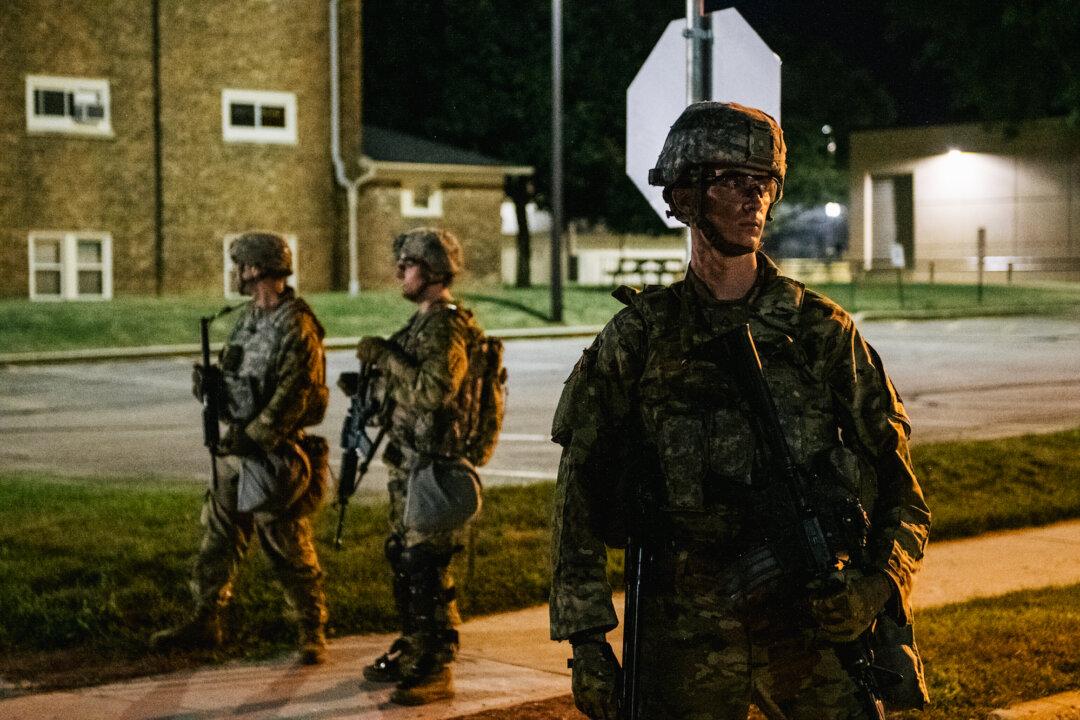About 500 Wisconsin National Guard troops have been called to active duty in an effort to stem potential violence in Kenosha, Gov. Tony Evers announced Monday.
The mobilized Guard may only be used to assist local law enforcement, protect key infrastructure and institutions, and to support first responders such as the Kenosha Fire Department, Evers said in a statement. He added that the troops will not interfere with people peacefully protesting or media reporting on the situation.





